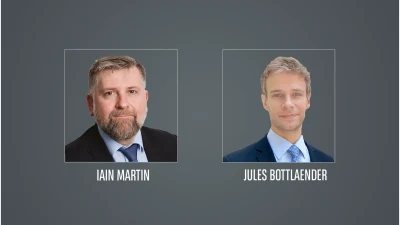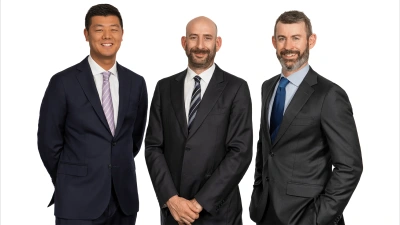Finding value: outsourced dealing desks - the next step in optimisation?


In a period of rapid societal, regulatory, and technological change, today asset owners are more frequently reviewing their investment and operational strategies as they continue the pursuit for operational efficiency and investment returns.
Increasing regulatory transparency and governance obligations are driving institutional investors to look for the right blend of outsourcing and insourcing of core activities to deliver the necessary governance, oversight and efficiency for their investment portfolios. The optimal insourcing/outsourcing mix of investment, operational and execution capabilities have therefore become critical strategic decisions for today’s fund executives.
At a recent FEAL luncheon briefing sponsored by BNP Paribas Securities Services (BNP Paribas), Natalie Floate, Head of Market and Financing Services, Asia-Pacific at BNP Paribas said asset owners and asset managers around the world are demanding increased visibility, accuracy and timeliness in their investment management.
“Fund managers are weighing up how much internal expertise they need to ensure they continue to meet their regulatory obligations,” she said. “They are questioning whether they should insource or outsource, and if they do outsource, they are demanding a high level of oversight and governance of their providers.
Typical questions funds are asking include: “To what extent should we outsource and which service? Do we have the resources to manage multiple external providers and what oversight and governance do I need to maintain in-house?” Floate said. Getting the model right is critical in order to gain the on-going efficiencies of an outsourced model. “Because it would be extremely inefficient to appoint multiple external providers and then create an internal team to check everything they are doing. Whilst oversight of your providers is essential and good governance the challenge is to get the right mix between oversight and overbearing,” Floate said.
Floate also commented on the importance of a clear technological transformational strategy with the flexibility to adapt to the changing business environment. “For example, when choosing a technology solution, a closed architecture may later limit a fund’s flexibility to integrate new sources of data as needed. This may have no impact today because you don’t envisage change in your asset allocations, but what if one of your asset managers comes to you tomorrow and says ‘We want to try this’, and suddenly you have a new project because you are not equipped in terms of how to manage it,” Floate said.
Adding to the importance of a clear technological strategy, funds should also consider that their operating models support the growing need for efficient data mining and intelligent analytics, according to Bruce Russell, Director at Shoreline Consulting. “Often, what begins as a risk or performance project, morphs into a more complex data management project”. When working with large sovereign funds on big data management, Russell has observed the need for more real-time analysis. “There is no point making active decisions about how to tilt the portfolio when your data is two days old and things have moved on,” Russell said.
The case for insourcing
Insourcing of investment management can include directly managing an asset class or a fund/portfolio, dealing and execution, tactical and strategic asset allocation, manager research and oversight and sophisticated risk and performance analytics.
“Insourcing investment management can potentially fundamentally change a business more than initially considered.” Russell said. “It is important to ensure that the market is able to provide the solutions that will meet the specific needs of the new operating model”.
According to Russell: “Asset owners increasing their in-house investment capability need to ensure that the business case for the change is understood by the appropriate stakeholders. The investment and operational implications should be documented and clear, and the culture of the organisation must be ready to embrace the new model. Whilst the investment business case is often clear, the operational and cultural implications of the decision may not be fully appreciated.”
Russell elaborated using the example of the risks of porting across IT solutions from an ‘asset management’ system to an ‘investment management’ system – the latter being the unique view required by asset owners. “The requirements of the two systems can be very different. Being a fund manager and an asset owner and trying to manage whole-of-portfolio is very different from running a specific asset class, in the way you look at the portfolio or work-flows and make investment decisions,” he said.
Developing a target-operating model can help guide strategic change and ensure details and variety of scenarios are adequately considered. “A fixed vision of what things are going to look like in five years’ time could unravel as technology, business models and regulations change. Road maps also need to deliver benefits along the way, in bite-sized pieces of change, rather than participants having to wait five years for the journey to pay off. It is therefore crucial to assess the strategy and make the necessary modifications during the transition.
Outsourcing dealing and execution
To illustrate the creative solutions superannuation funds are developing, Floate described a client BNP Paribas had worked with – a European pension fund with ambitious plans to insource their investment management that had been outsourced several years prior.
As the fund worked through the details, they realised they wanted the ability to decide what to buy – the investment decision – but then stretching this to execution and bringing the execution of trades in-house carried a range of direct and indirect costs. For example, hiring dealers, obtaining licences, setting up the necessary systems, ensuring compliance and managing relationships with counterparties would be a huge distraction from their focus on the investment strategy and decisions.
Additionally, the fund would also need to consider periodic costs such as system platform upgrades, regulatory changes and other unforeseen factors that would compel them to redirect resources, incur additional cost and potentially adjust their operating model.
“The fund went through a comprehensive evaluation to determine the level of risk they would be bringing into their organisation around execution, when actually their core objective was investment strategy and stock selection not necessarily to execute on market,” Floate said.
This client’s solution was to adopt an ‘agency execution model’, which involved an outsourced dealing desk to handle trade execution for both internal and potentially external managers. Optimising execution, accelerating time-to-market, netting transaction and a ‘plug and play’ solution were key selling points for the model.
The benefits of a plug and play dealing desk
Having a “plug and play” external dealing desk that has the necessary relationships reduces the complexity of pushing into new emerging markets, provided the desk has a broad enough capability in terms of market coverage and instrument expertise.
“For example, an investment manager who decides to invest in a new market – let’s say Indian derivatives. With a plug and play external dealing desk, the manager doesn’t need to worry about finding an Indian execution expert who knows intricacies of the India market. The manager simply checks if the dealing desk has the asset class covered, then decides on the investment and takes advice from the desk expert if needed,” she said “It’s an effective model for Australian funds who already in-source funds management to consider trialling for their offshore trades.”
Floate further explained how the plug and play model also provides greater agility for funds insourcing investment activity.
“An in-house desk is harder to close or unwind quickly, and less agile to move into new asset class or instrument types” she said.
Better transparency, staying nimble
Today, asset owners and asset managers face an increasingly complex operating environment. Rapid technological, cultural and regulatory change in an increasingly connected and globalised economy, delivers new challenges and opportunities for fund executives.
“Having transparency and better visibility, without detracting from timeliness and speed of execution, has become a common challenge for clients around the world, and as a result we are seeing increasing interest for our outsourced dealing desk solutions. You can outsource asset allocation, you can outsource compliance monitoring, you can outsource all kinds of things, but are you getting the right information you need or do you have the internal expertise you need in regards to scrutiny and oversight?” concluded Floate.
Disclaimer:
BNP Paribas Securities Services is incorporated in France as a partnership limited by shares and is authorised and supervised by the European Central Bank (ECB), the ACPR (Autorité de Contrôle Prudentiel et de Résolution) and the AMF (Autorité des Marchés Financiers). BNP Paribas Securities Services ARBN 149 440 291 (AFSL No: 402467) is registered in Australia as a foreign company under the Corporations Act 2001 (Cth) and is a foreign ADI within the meaning of the Banking Act 1959 (Cth).
The information contained within this document is believed to be reliable but neither BNP Paribas Securities Services nor any of its related entities warrant its completeness or accuracy nor accept any responsibility to the extent that such information is relied upon by any party. Opinions and estimates contained herein constitute BNP Paribas Securities Services' or its related entities’ judgment at the time of printing and are subject to change without notice. This document is not intended as an offer or solicitation for the purchase or sale of any financial product or service outside of Australia and is intended for ‘wholesale clients’ only (as such term is defined in the Corporations Act 2001 (Cth)). The information contained within this document does not constitute financial advice, is general in nature and does not take into account your individual objectives, financial situation or needs. BNP Paribas Securities Services recommends that you obtain your own independent professional advice before making any decision in relation to this information.
The information contained in this document is confidential and may not be reproduced in any form without the express written consent of BNP Paribas Securities Services. Additional information is available on request.
Recommended for you
BNP Paribas explores how climate disclosures across APAC are setting new benchmarks for transparency & accountabilit...
Hey, small business owner, have you been paying your super? It’s become common knowledge that small business owners are ...
Shaping the future: discover how global custodians are driving innovation through digital solutions in the Australian and New Zealand markets.
The world’s electricity grids are large, but they are about to become giants with the fundamental shift to the electrifi...













